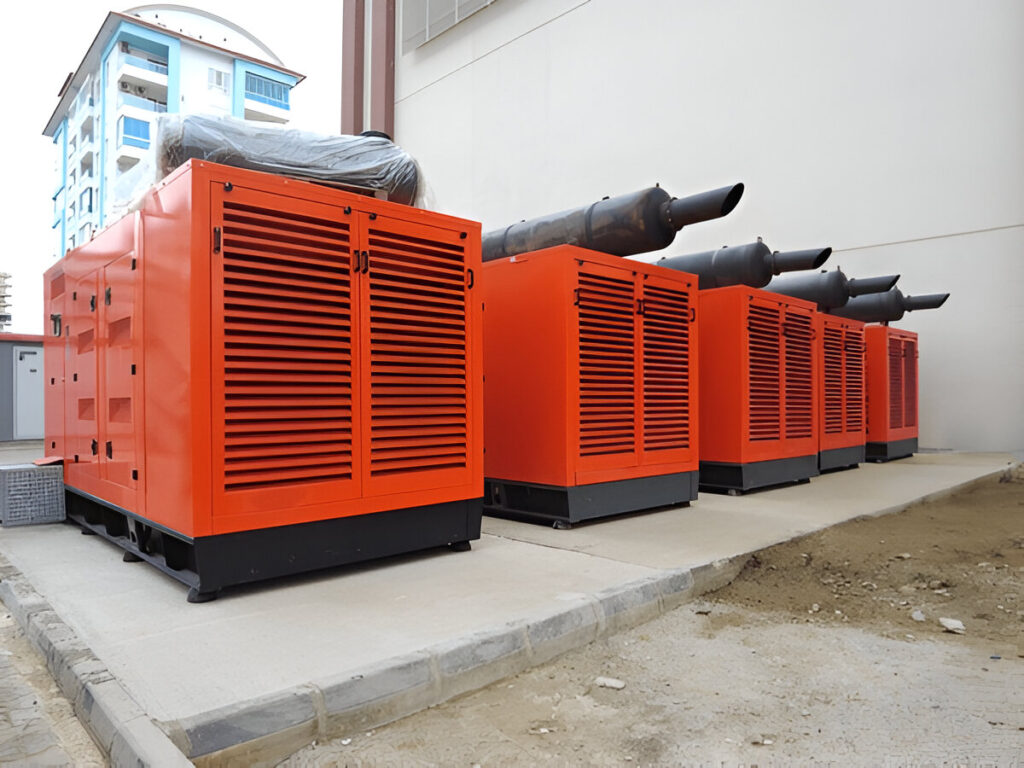Diesel Generators play a crucial role in providing reliable backup power for homes, businesses, and industries across Canada. Whether you’re using them during power outages or as a primary energy source for remote locations, ensuring these generators meet local environmental and operational regulations is essential—not just for legal compliance but also for safety, efficiency, and longevity.
But how do you make sure your diesel generator is fully compliant with Canadian standards?
Let’s break down everything you need to know in a simple, human-readable way.
1. Understand Canadian Environmental Regulations for Diesel Generators
In Canada, Environment and Climate Change Canada (ECCC) sets strict emission limits for diesel-powered equipment. These rules are in line with international standards and target pollutants like nitrogen oxides (NOx), particulate matter (PM), and hydrocarbons.
For new diesel motor generator purchases, make sure your unit complies with Tier 4 Final or equivalent emission standards. Most modern generators from brands like Caterpillar Generator Company or Cummins Generator Canada are already compliant—but always double-check!
2. Proper Installation and Permits Are a Must
In many provinces, including Ontario, Alberta, and British Columbia, installing a diesel generator without proper permits can lead to hefty fines. Always:
- Hire certified electricians or installers
- Apply for the necessary municipal or provincial permits
- Follow local zoning laws and distance regulations for exhaust outlets
Additionally, if you’re setting up a generator enclosure, make sure it complies with fire safety and ventilation standards.
3. Noise and Vibration Regulations
In urban areas, noise control is a big issue. Your generator for sale might look great on paper, but without a low-noise rating, it could violate city bylaws once installed.
Solutions:
- Opt for standby generator Canada models with built-in sound insulation
- Install acoustic barriers or silencers
- Regularly maintain the generator to avoid loud vibrations and engine knocks
4. Choose Reputable and Certified Brands
Buying from trusted companies ensures you’re getting products that meet Canadian standards. Reputable brands like:
…are already compliant with federal emission and safety requirements. Whether you’re looking for a 10kW generator or a heavy-duty 25kW generator, always verify compliance before purchase.
5. Regular Maintenance for Ongoing Compliance
Even if your generator is compliant at the time of purchase, failing to maintain it can result in violations later. Regular servicing will:
- Reduce emissions
- Lower noise levels
- Prevent fuel leaks
- Ensure consistent performance during inspections
Some operators also opt for professional generator rentals to avoid long-term maintenance responsibilities altogether.
6. Know the Provincial Variations
Each province may have its own regulations. For example:
- British Columbia may require environmental assessments for large-scale generators
- Ontario has specific fuel storage rules
- Alberta enforces stricter guidelines in industrial zones
If you’re buying a diesel generator for sale, always consult local bylaws or your municipal government’s website to make sure your setup is legal.
7. Sustainable Fuel Options
More people are shifting towards diesel fueled generators that can run on biodiesel blends or other low-emission fuels. This not only helps the environment but also ensures compliance with Canada’s long-term emissions goals.
Check if your generator supports biodiesel or synthetic diesel fuels—it’s a step toward future-proofing your power system.
8. Buying Used Generators? Be Extra Cautious
While it’s tempting to go for a used generator for sale to save money, older units might not meet current regulations. Always:
- Ask for maintenance records
- Confirm emission compliance
- Avoid outdated models that lack Tier 4 certification
Reliable dealers offer certified used generators for sale with performance guarantees and documentation to back compliance.
9. Documentation and Inspection
Keep a copy of all:
- Purchase and installation documents
- Inspection reports
- Maintenance logs
This not only protects you during audits but also improves resale value if you plan to list your unit as a generator on sale in the future.
Conclusion
Ensuring your Diesel Generators meet local regulations in Canada isn’t just about ticking legal boxes—it’s about running a safe, efficient, and environmentally responsible power system.
Here’s a quick checklist for compliance:
Buy certified units from trusted brands like Cat Generator or Cummins Kamloops
Install with permits and follow local bylaws
Perform regular maintenance
Choose low-emission or biodiesel-compatible models
Keep all documentation organized
Whether you’re browsing for a generator for sale or need a backup generator Canada for emergencies, being informed helps you make the best, most compliant choice.
Ready to power up with compliance in mind?
Explore our full range of diesel motor generators, generator sales, and used generator for sale options now!





